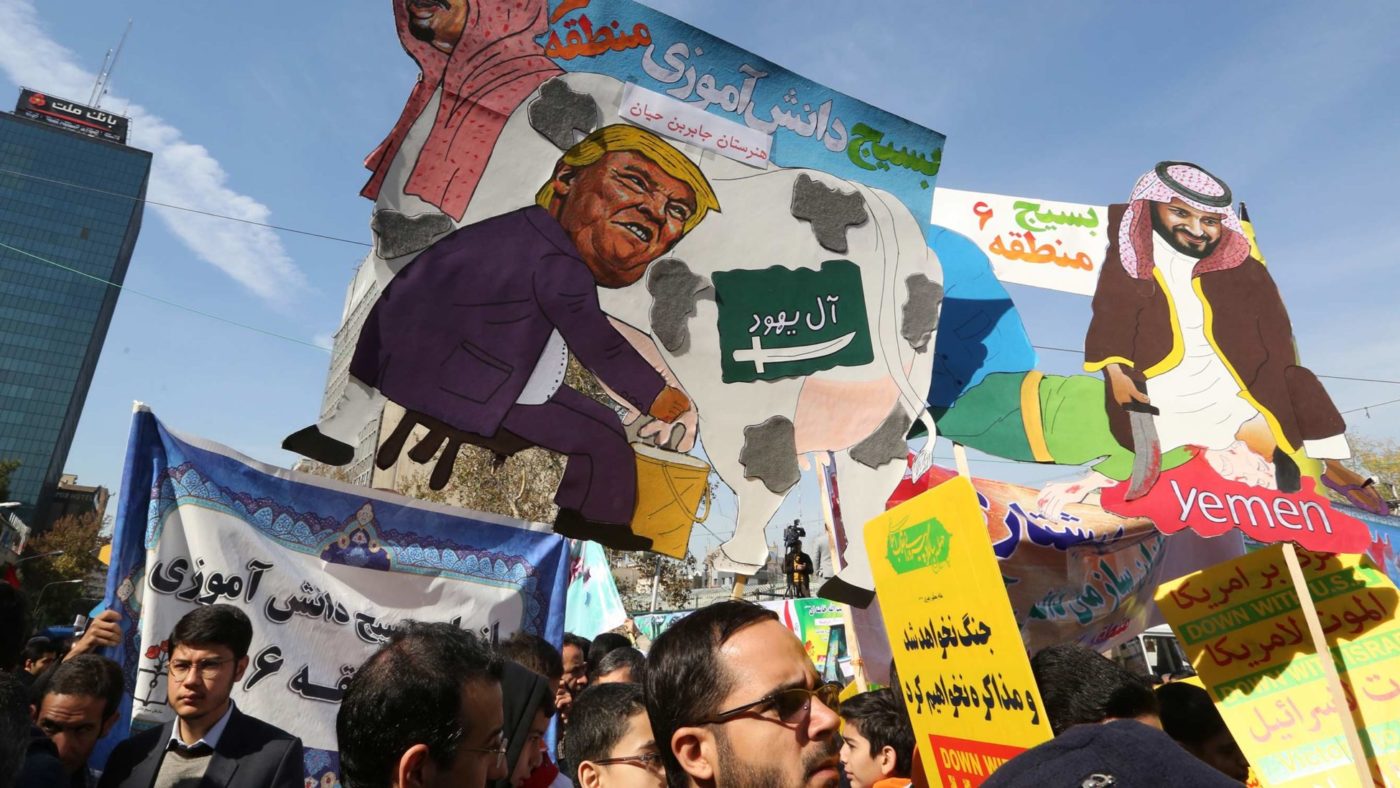Around the world, growing numbers of governments are using economic sanctions as a tool to influence the behaviour of other countries. Their tactics are nothing new. Sanctions and embargoes have a long and chequered past, dating back to antiquity, when the Athenian statesman Pericles issued the so-called “Megarian decree” in response to the abduction of three local women in 432 BC. Yet, as Gary Hufbauer and Jeffrey Schott note in their study of the topic, rather than preventing conflict, Pericles’s sanctions in Ancient Greece brought a number of unintended consequences; ultimately helping to prolong and intensify the Peloponnesian War.
This might be the first instance of sanctions being tried – and failing – but we have many more recent cases to choose from. Veterans of GCSE history may remember the League of Nations and the failure of its sanctions to protect Abyssinia from Fascist Italy. Draconian regimes still rule countries like Iran, largely under American embargo since 1979 – not to mention Cuba, whose sanctions date back to 1962.
Fast forward to 2018, and the global appetite for sanctions looks as strong as ever, with President Trump edging ever closer to full-scale trade war with China. Rarely a week seems to go by without news of fresh sanctions against Russia from the Western world. Citizens, horrified by extra-judicial killings and cyber warfare, might well favour such penalties. In times of public outrage, it may feel and look good for policy-makers to be “doing something”. But have we given sufficient thought to whether such measures actually work?
As Nima Sanandaji details in a new IEA report, trade sanctions do occasionally achieve their strategic or foreign policy goals. Yet far more often, they are ineffective blunt instruments.
Firstly, by penalising ordinary people and businesses, trade wars can strengthen authoritarian regimes. Citizens of sanctioned countries often feel betrayed and immiserated, and rally behind their governments when the rest of the world cuts off trade links. By centralising power and empowering autocrats, sanctions often have the unintended effect of reducing civil liberties and democratic freedom.
Like any form of ‘collective punishment’, sanctions inevitably impose harm on innocent civilians, which can have lasting repercussions. Following their invasion of Kuwait in 1990, the UN Security Council placed a near-total trade and financial embargo on Iraq.
Prior to the embargo, Iraq still had elements of a developed economy, a well-educated middle class, and a millennia-old entrepreneurial culture which the country could have drawn on to become more prosperous. Instead, due to global isolation, the country’s economy collapsed. Iraqi civilians suffered widespread poverty and malnutrition. Per capita income dropped from $3510 in 1989, to $450 in 1996 and the intervening years saw a mass exodus of educated people, as job opportunities became scarce. So, while sanctions did achieve their strategic goal of limiting Iraqi military expansion, they brought untold human, economic and socio-political costs.
As Sanandaji also notes, trade sanctions impede the functioning of free markets, thereby increasing the public’s reliance on state centralisation for basic provisions. When, in recent years, imports stopped flowing to Russia through international trade, for example, the state began cutting deals with oligarchs to produce goods. A country which previously had some free-market aspirations (e.g. via a low and flat tax rate), has effectively been pushed towards a more centrally planned, crony capitalistic model.
Sanctions, then, have doubly benefited the Putin administration – by centralising power and helping alienate the public from Western-backed opposition leaders or those who might view the West as a model for future economic development.
Not only do sanctions undermine the well-being of those living in targeted countries, they also have pernicious impacts on the world economy, leaving everyone worse off. The total trade loss brought about by Western sanctions on Russia has reached $114bn – with $44bn borne by those imposing the sanctions. Even neutral countries, Sanandaji notes, incur trade losses due to sanctions, because they disrupt the global value chains that connect people and businesses together.
Looking at a number of case studies, his study finds that, ultimately, sanctions do not work. The unintended consequences and negative externalities are simply too great. Instead, he argues, policy-makers should aim to promote free trade on a global level, to secure peace and prosperity.
Through free exchange and international supply chains, countries become dependent upon each other (in a good way), which in turn facilitates greater cooperation and wealth. Remove this, and conflict is a likely alternative outcome.
Not for nothing do trade sanctions often descend into physical combat. The War of 1812, for instance, stemmed from the United States being unable to achieve their independent trade goals using sanctions, following years of British blockade, and unsuccessful retaliatory embargoes from the likes of Thomas Jefferson and James Monroe.
Those that fail to learn from history, are doomed to repeat it, in Churchill’s famous words. Unfortunately, the long and largely fruitless history of sanctions suggests we’ve learnt very little.


